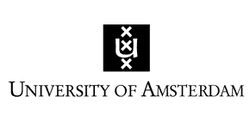PhD Position: 'The Psychological Consequences of Unequal Treatment in the Classroom'
Updated: 26 Mar 2025
Do you want to know what goes on in children’s heads when they are treated unequally in the classroom? Then apply for this PhD-position and join our team!
"The Psychological Consequences of Unequal Treatment in the Classroom"
We are looking for a PhD candidate to study the psychological consequences of unequal treatment in the elementary school classroom.
Inequality is on the rise globally. And this is visible in the classroom. Children from low socioeconomic status (SES) or immigration backgrounds underperform in school relative to their high-SES or non-immigrant peers, even when they are equally competent.
Teachers often seek to reduce such achievement inequality by tailoring education to the needs of individual children (also known as within-school differentiation). One approach is formal differentiation, which involves assigning children to different ability groups (e.g., low ability groups receive additional instruction, high ability groups more challenging tasks). Another approach is informal differentiation, which involves teachers adapting their teaching practices to children from different backgrounds, often unknowingly and unintentionally (e.g., setting higher expectations, providing more praise).
Although these formal and information differentiation practices can be beneficial, they might also have adverse effects (e.g., children in low ability groups develop negative self-views). In this PhD project you will examine the psychological impact of differentiation practices on children (6-12 years) and whether it can inadvertently contribute to unequal opportunities.
The overarching project consist of two research projects.
- Project 1 takes place at the Kids in Context Lab (https://kidsincontext.com), part of the Department of Developmental Psychology, Utrecht University. This project focuses on formal differentiation, such as ability grouping. The vacancy for this project (Project 1) can be found on the website of Utrecht University.
- Project 2 takes place at KiDLAB (https://kidlab.nl/), part of the Research Institute of Child Development and Education, University of Amsterdam. This project focuses on informal differentiation (e.g., setting higher expectations or providing more encouragement to children). The current vacancy is for this project (Project 2).
If you are interested in both projects, please apply for both. If you have a preference for one project over the other, please indicate this in your letter.
Although the projects take place at different institutions, they are part of the same research program and involve close collaboration between the PhD candidates. The PhD candidates will conduct their own studies, but they will collaborate with each other to conduct a longitudinal study in a socioeconomically diverse sample. The goal is to examine how differentiation practices shape interpersonal (e.g., friendships) and intrapersonal (e.g., self-views) outcomes over time.
Both project are supervised by Jellie Sierksma (Utrecht University) and Eddie Brummelman (University of Amsterdam). Stefanie Nelemans (Utrecht University) will co-supervise Research Project 1. We are an interdisciplinary team, combining insights from developmental, educational, and social psychology, as well as adjacent disciplines such as sociology.
What are you going to do
- Together with your supervisory team, you will design and conduct novel empirical studies;
- You will integrate novel insights across disciplines, including developmental psychology, social psychology, education sciences, and sociology;
- You will be responsible for all aspects of data collection (such as recruiting participants and conducting research at schools or the NEMO Science Museum);
- You will use advanced statistical methods to process and analyze data (e.g., R studio, MPlus);
- You will write international peer-reviewed scientific papers;
- You will work in a collaborative team that seeks to improve one another’s research;
- You will present your work at international conferences for academics, policy makers, and educators.
What do you have to offer
- You hold a master’s degree in psychology, pedagogics, sociology, educational science, or an associated field, or you will obtain such a degree this academic year;
- You have experience with or interest in quantitative research, preferably involving children;
- You are motivated to design and conduct your own quantitative research;
- You have good quantitative data-analysis skills and you are willing to further develop those skills;
- You have good writing and presentation skills and you are willing to further develop those skills;
- You have command of the English language, both spoken and written;
- You have command of the Dutch language or you are willing to learn Dutch, as you will be interacting frequently with Dutch-speaking children.
What else do we offer
- A position in which initiative and input are highly valued.
- An enthusiastic and warm team that is open to new colleagues.
- An inspiring academic and international working environment, in the heart of Amsterdam.
The position concerns temporary employment of 38 hours per week for a maximum term of 48 months. The initial employment is for one year. Following a positive assessment and barring altered circumstances this term will be extended by a maximum of 36 months, which should result in the conferral of a doctorate. Together with you, your supervisors will put together a curriculum that will also include the opportunity to attend training courses and both national and international events. You will also have the opportunity to teach bachelor’s and master’s students.
At this department you will be working
The PhD student will become part of KiDLAB (https://kidlab.nl/), which is embedded in the Developmental Psychopathology program group at the Research Institute of Child Development and Education, and they will be supervised jointly by Eddie Brummelman (University of Amsterdam) and Jellie Sierksma (Utrecht University).
To apply, please submit your application before 28 April as a single .pdf file, including:
- your curriculum vitae
- a letter of motivation
- an overview of the courses you took and the grades you received during your master program
The first round of interviews takes place on May 13, 2025.
The second round of interviews takes place on May 26, 2025.
Our preferred start date is September 1, 2025.
38 hours per week
Nieuwe Achtergracht 166

